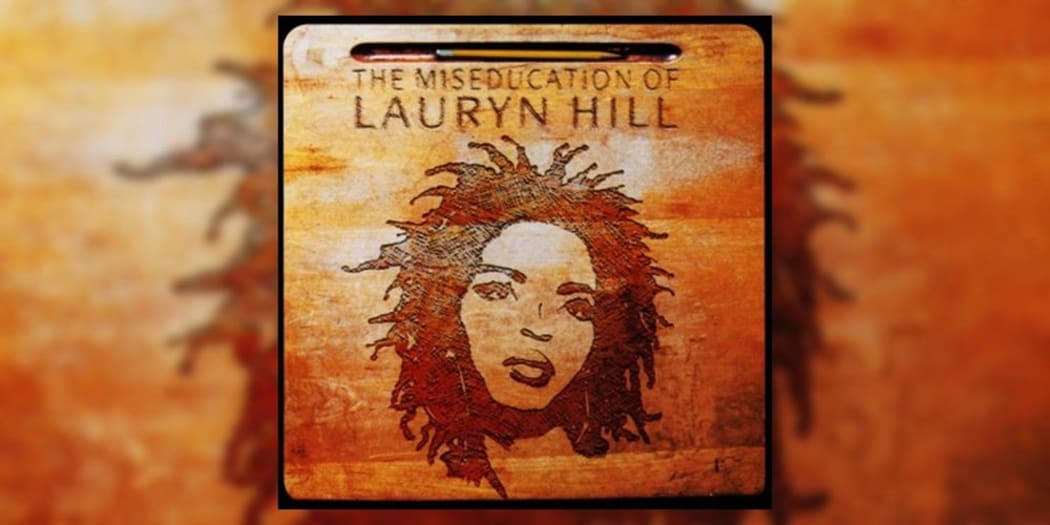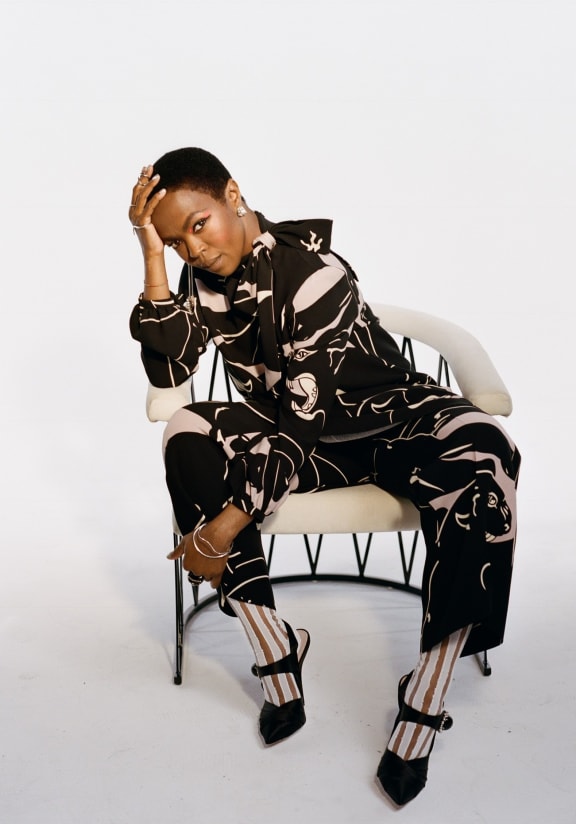Many music lovers talk about an album, gig or song that changed them - igniting a private and all-consuming love affair and marking the beginning of a lifetime of music appreciation.
For Melody Thomas, the album was Lauryn Hill’s award-winning solo debut The Miseducation of Lauryn Hill, released in 1998, and currently being celebrated with a 20th anniversary tour that hits Auckland on February 16th.
Ahead of the concert, Melody Thomas reflects on what Ms Hill's music means to her.

The Miseducation of Lauryn Hill Photo: Supplied
My music tastes can be firmly organised into “before” and “after” Lauryn Hill.
Before Lauryn, I was a pimply, mopey teenager whose taste in music was mostly inherited from the bogans and metalheads in my friend group.
Because they were mostly guys, the voices that filled my earphones were too - singers like Silverchair's Daniel Johns, Placebo's Brian Molko, Nirvana's Kurt Cobain and Rage Against the Machine's Zac de la Rocha (with the odd interjection from Garbage's Shirley Manson and Hole's Courtney Love).

Lauryn Hill Photo: Supplied
Then, when I was 14, I either pinched or was given a copy of The Miseducation of Lauryn Hill and my whole musical world opened up (the pimples unfortunately remained). For months I listened to nothing else, convinced that the musician in my headphones was speaking directly to me.
In reality, Lauryn was singing about subjects I had little to no experience in: motherhood, God, relationships, the struggle of being young and Black in the US, but at the time I believed the music to be “mine”, and adored it privately and on repeat without ever thinking to check if the people around me liked it too.
When The Miseducation… dropped in 1998, it wasn't the first time the world had heard of Lauryn, who'd already had a number of critical successes with The Fugees as well as a handful of acting roles (including alongside Whoopi Goldberg in Sister Act 2).
But the album lifted her success to a whole new level, debuting at number one on the Billboard 200 chart and selling over 400 thousand copies in its first week (record-breaking for first week sales by a female artist).
The effortless amalgam of hip hop and soul music would go on to be nominated for ten Grammy Awards, winning five including Album of The Year, becoming the first hip hop album ever to win that category.
As a teenager it was the singles I loved best - the personal and infinitely sing-alongable ‘Ex-Factor’, about an on-again-off-again relationship coming to its end; Motown-bop ‘Doo Woop (That Thing)’, speaking directly to every teenage girl struggling with low self-worth (“You know I only say it cause I'm truly genuine, Don't be a hard rock when you really are a gem”); and ‘Everything is Everything’, about the struggles of inner-city youth in the US, which is as relevant today as when it first came out.
These days I can't pick a favourite song, and in fact the final impression on listening is that it contains not one bad moment. It's timeless: continuing to surprise and unfold with every listen.
There are risks to loving Lauryn Hill this much.
She has a track record of showing up late to her shows only to perform a bewildering set of haphazardly rearranged songs. Sometimes she'll be on the way to a triumphant comeback, only to revert back to tardiness and unprofessionalism again. The last time she performed in New Zealand, at Ragamuffin Festival in 2010, most of the crowd had dissipated by the end of her set. Fans inevitably get online after her shows to call her out, and sometimes her musical peers get involved - most notably The Roots' Questlove a few years back.
I understand it shouldn’t be too much to ask for an artist to show up on time, but I can’t help but wonder she'd get the same treatment if she were a man, or if she were white. Female artists have a long history of being painted as “difficult” and “divas”, when the same behaviour by men is framed as an inevitable side-effect of their genius.
This stereotype is even more deeply entrenched for Black women (google “angry Black women” for a whole lot of reading on this).
And racism has plagued Lauryn’s career. In the 90s a caller to the Howard Stern show claimed she’d said she’d “rather starve than have a white kid buy her album”. This rumour persists today despite the fact that a) no record of it exists and b) both MTV and Lauryn Hill have denied it ever happened.
Apparently, we find it easier to believe an anonymous talkback caller than an iconic Black artist who has told us again and again how much she loves and respects all her fans.
Perhaps Ms Hill will show up late in Auckland and perform a set that’s difficult to sing along to, though online reactions to her show in Johannesburg this weekend have me feeling hopeful.
Ms Hill outdid herself😁. What a show!! #Laurynhill pic.twitter.com/Yc5JZxaHXR
— Zinhle Dube 🇿🇦 (@ZinhleDube28) February 2, 2019
Either way, I'm with Talib Kweli, as he put it in this piece for Medium: “When you pay for a Lauryn Hill concert you are not paying for her to do what you want, you are paying for her to do what she wants. She is not an iPod nor is she a trained monkey.”
So long as there's a chance we'll get Lauryn Hill at her best - the vulnerable, powerful and unapologetic gem her fans know her to be - it's all worth the gamble.
Lauryn Hill plays Auckland's Spark Arena on Saturday, February 16.

